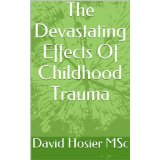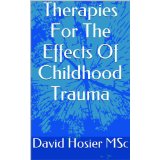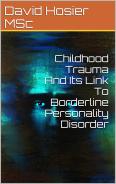Tags
Childhood Trauma: Borderline Personality Disorder – Should Sufferers Tell Others They Have It?
Deciding whether to tell others about the fact one is suffering from BPD presents a very difficult dilemma: on the one hand, there is the worry of being stigmatized and discriminated against, and, on the other, there is the possibility that others will become more understanding of one.
Because few people, through no fault of their own, are well educated about psychological issues, the decision a sufferer of BPD must make as to whether or not to tell others is one that cannot be taken lightly. However, it need not be an ‘all-or-nothing’ decision: it is obviously possible to tell some people (if reasonably believed to be entirely trustworthy) whilst not telling others; similarly, it is possible to decide how much detail it is necessary (or not) to go into.
First of all, let’s look at the possible benefits (and it important to note the word ‘possible’, as they are by no means guaranteed) which might come from telling others:
– those told might become more empathetic, understanding and forgiving
– those told might feel closer to you as a result
– those told might wish to offer some help and support
I REPEAT, THOUGH, NONE OF THESE POSITIVE OUTCOMES CAN, IN ANY WAY, BE COUNTED ON:
So let’s now consider some possible negative repercussions:
– those told may hurt the sufferer further by ‘not wanting to know’
– those told may tell others that the sufferer did not wish them to tell, thus betraying their trust. Then, sadly as we all know, some people have an unlimited capacity to entertain themselves with malicious gossip
– the sufferer may be met with discrimination
– if the sufferer tells people that s/he has a personality disorder, which carries with it very negative connatations, they may consider the sufferer ‘crazy’ or ‘mad’ due to their lack of knowledge and, conceivably, fear
– people told may lose the confidence or motivation to interact with the sufferer further
– people may cynically think that the sufferer is trying to provide an excuse for their mistakes
It is worth re-emphasizing that, because it is impossible to predict with complete accuracy how another will respond, the decision about what to tell and whom to tell should be given a great deal of thought.
THE USEFULNESS OF FIRST GETTING PROFESSIONAL ADVICE AND SUPPORT:
It is recommended, very strongly, that anyone suffering from BPD should seek professional therapy. With more and more research being conducted on the condition, positive treatment outcomes for those with BPD are continually increasing in likelihood. Professionals who can help treat BPD, and provide advice and support include:
– psychiatrists
– psychologists
– counsellors
– social workers specializing in mental health issues
– family therapists
– community mental health nurses
Such professionals can help the sufferer to come to a decision about considerations which may include:
– whether to tell others/whom to tell
– any treatment being received/considered
– specific symptoms the sufferer experiences which are believed to stem from the condition of BPD
– the causes of BPD (particular care is adviseable hear if explaining these to someone the sufferer believes may have contributed to their development of the condition).
NB Any decision to inform an employer of one’s condition should definitely only be undertaken once the relevant advice (including legal advice regarding the relevant discrimination laws, which are a mine-field) has been sought. It should be borne in mind that legal disputes with an employer, especially regarding such a sensitive issue as discrimination law, can be extremely stressful and emotionally draining.
Finally, it is worth saying that, in general, is easier to discuss the condition with others if one has spent some to researching it.
Above eBooks now available on Amazon for instant download. $4.99 each. CLICK HERE.
Best wishes, David Hosier BSc Hons; MSc; PGDE(FAHE).







